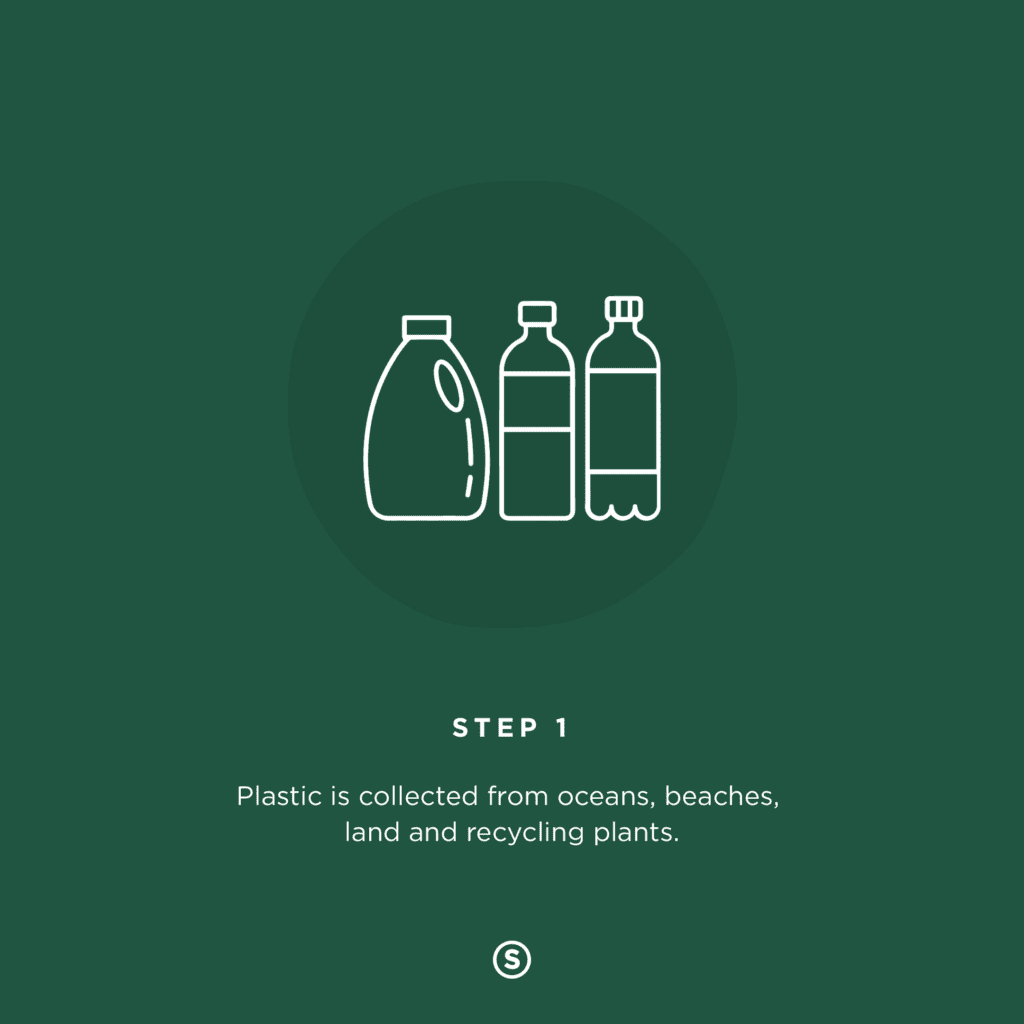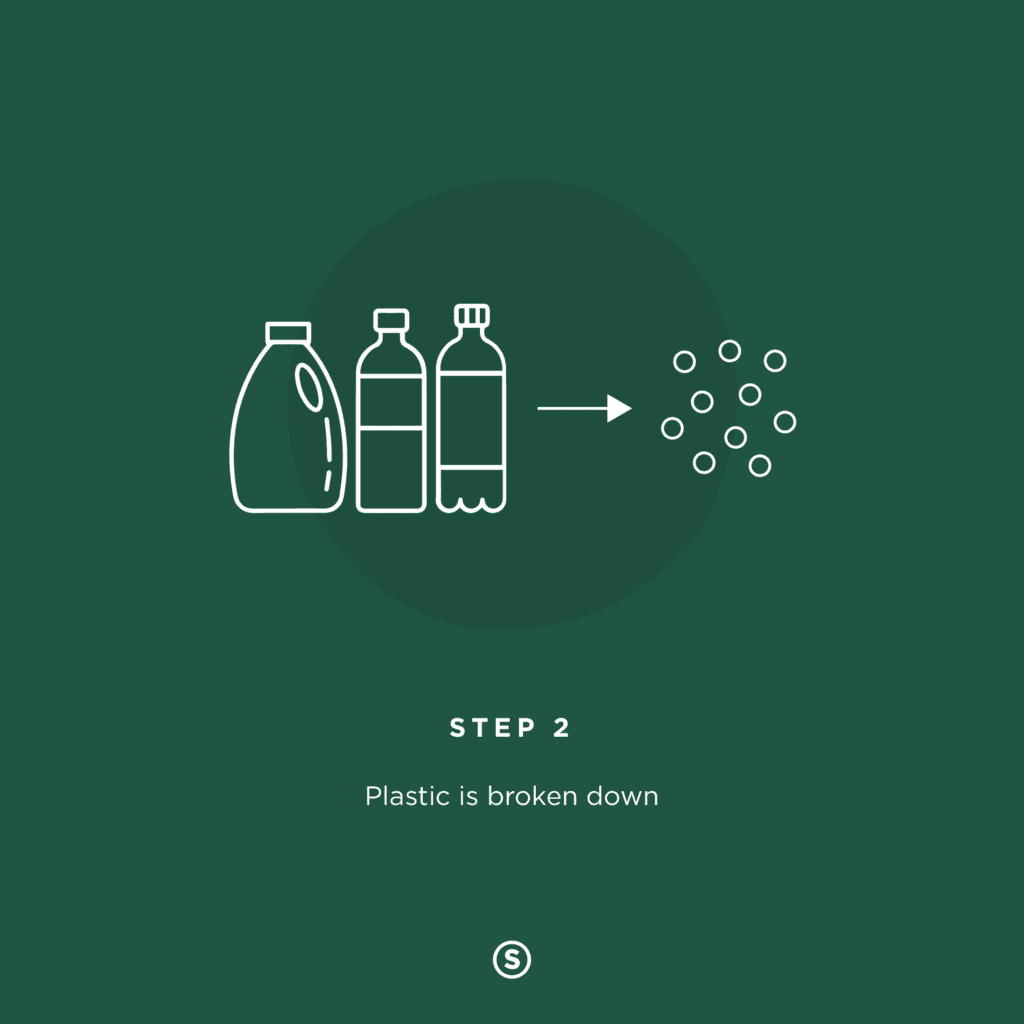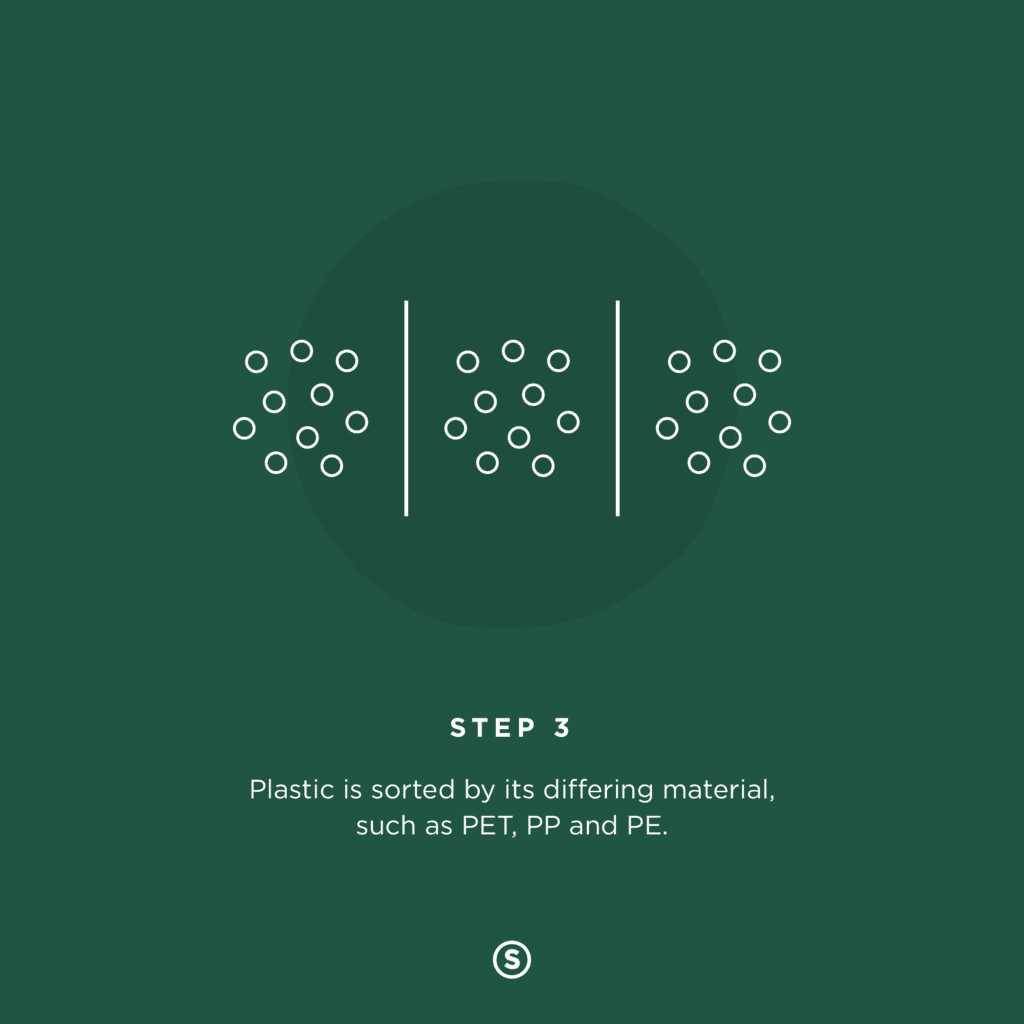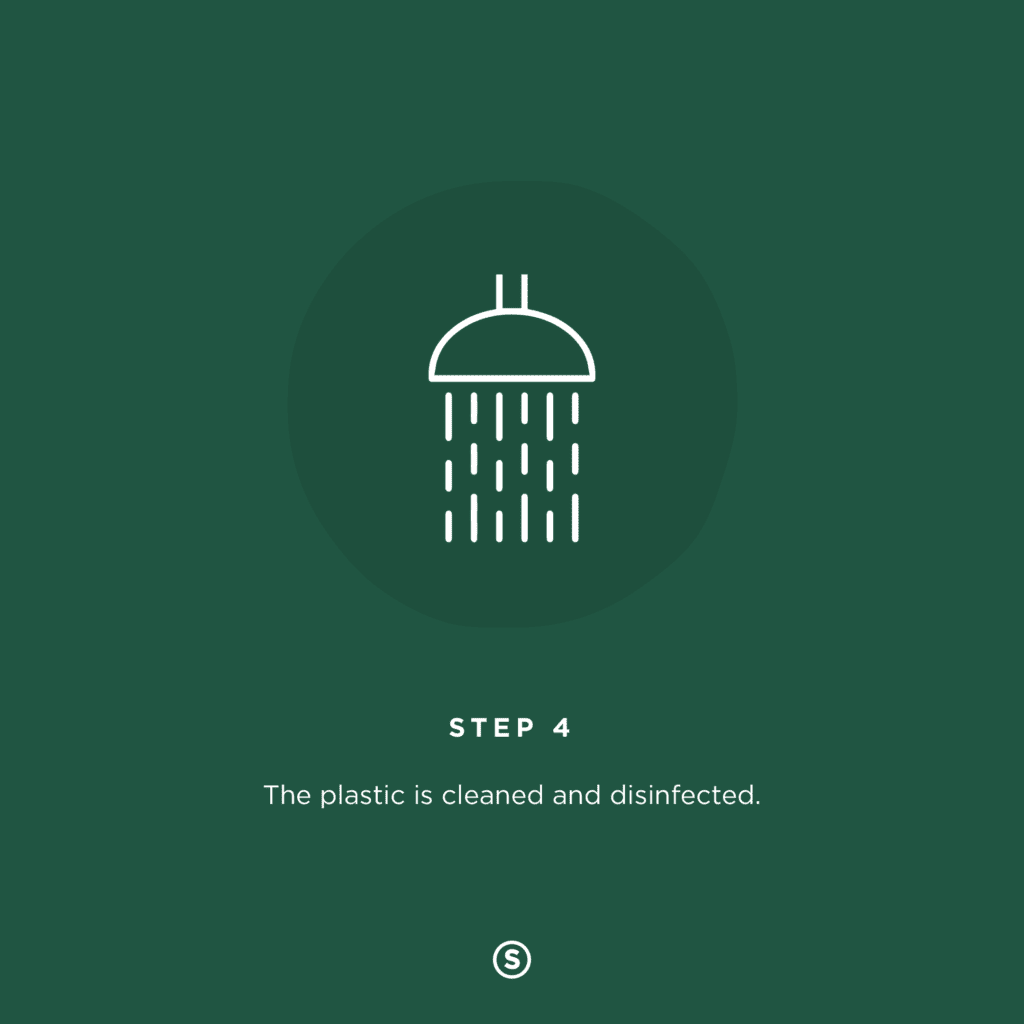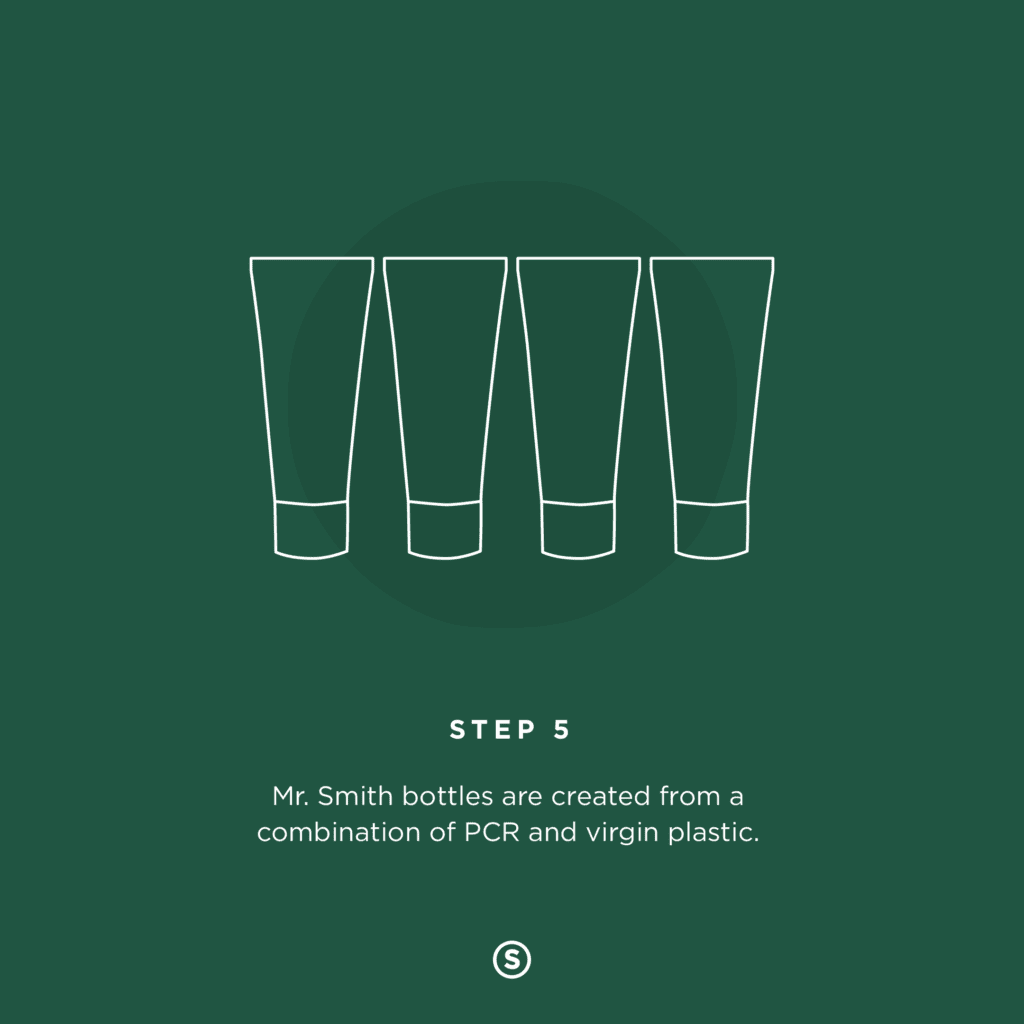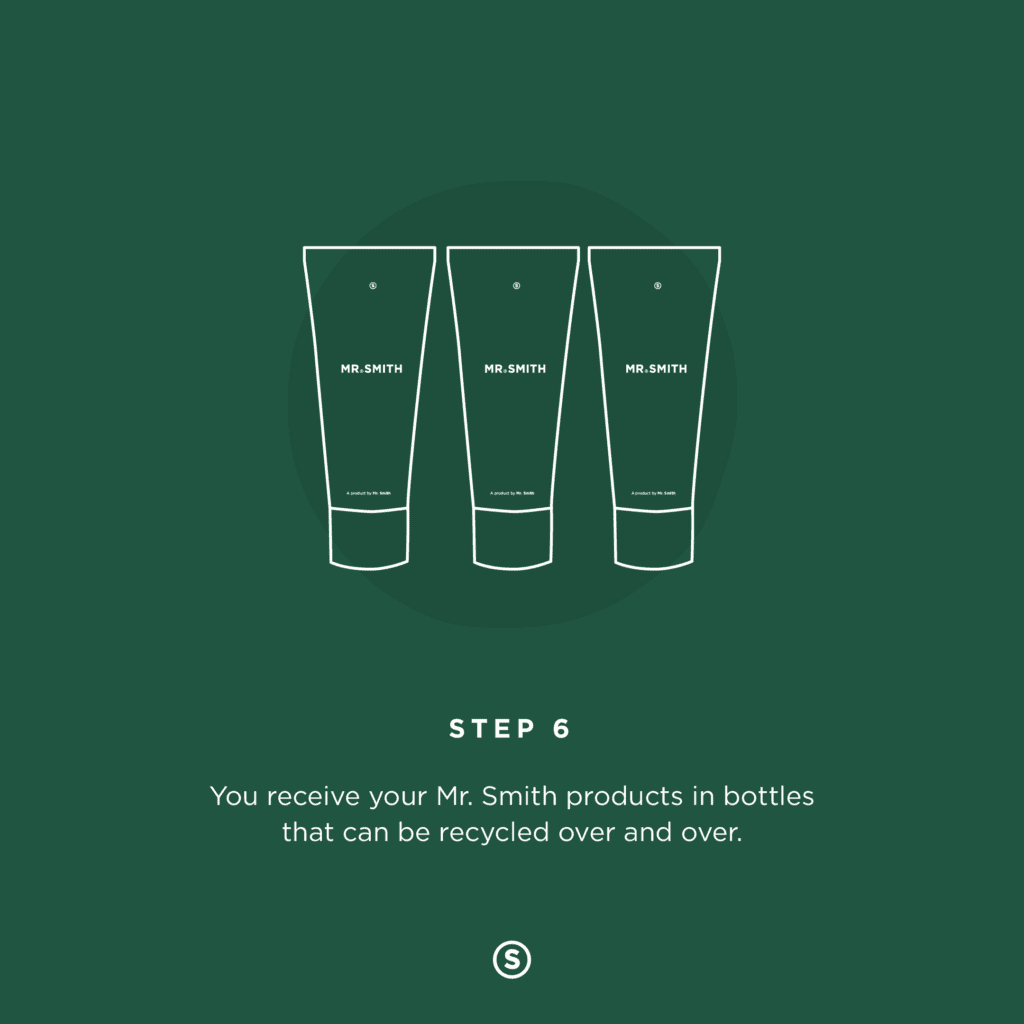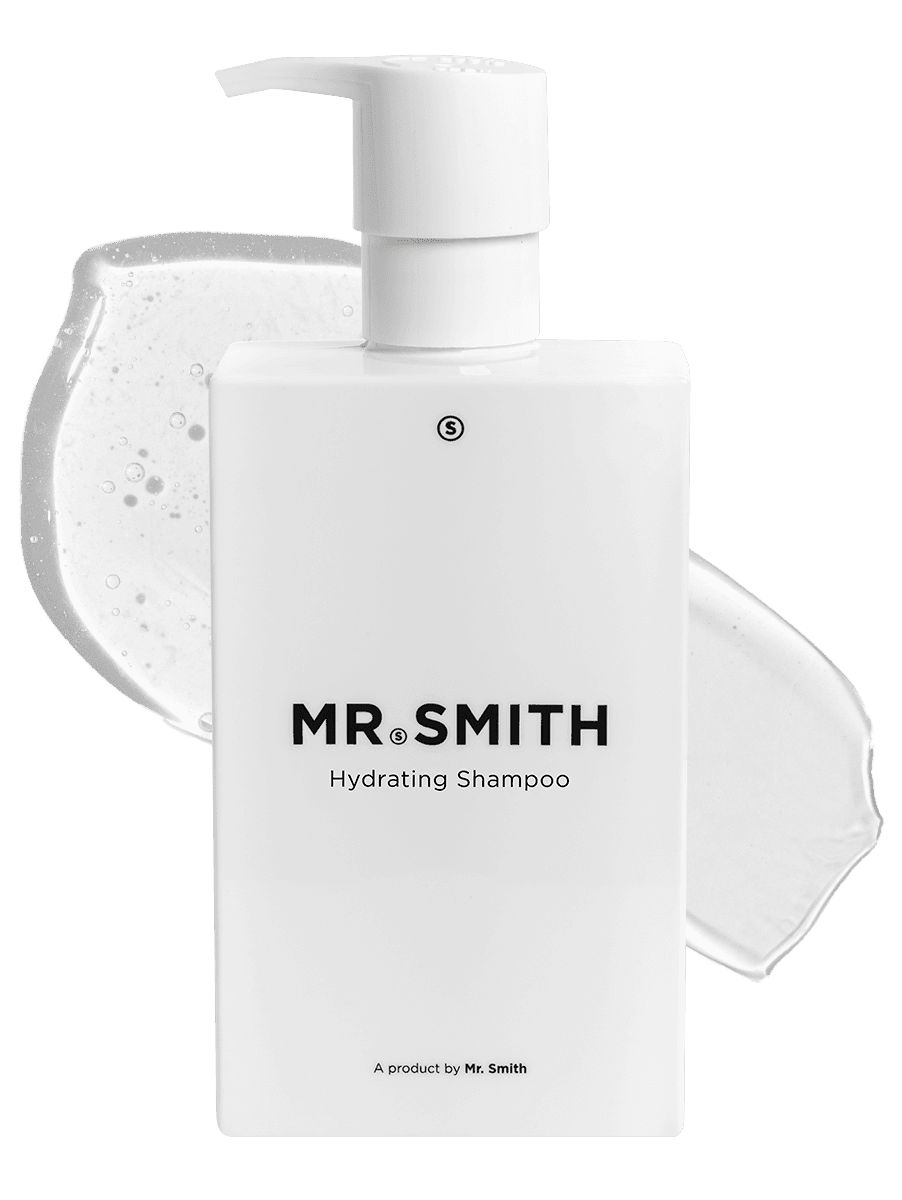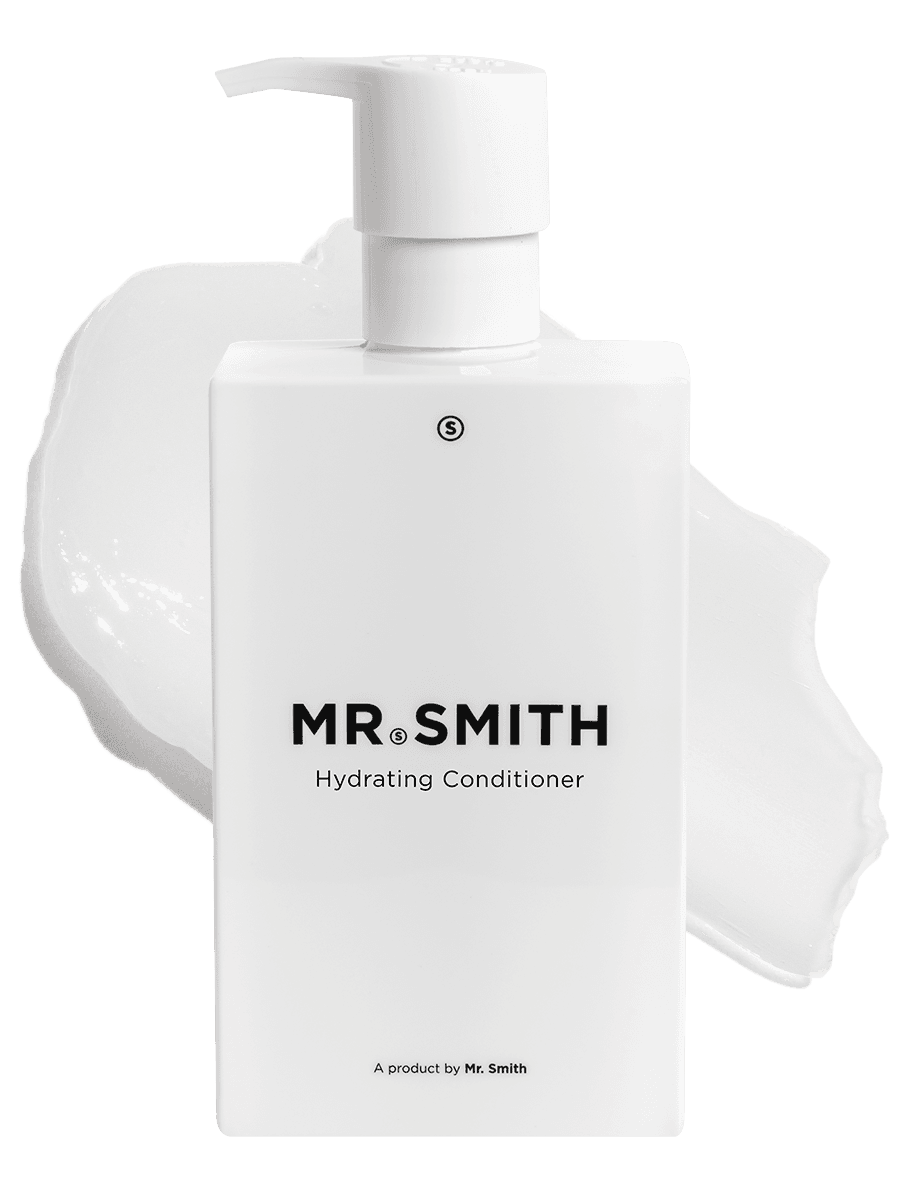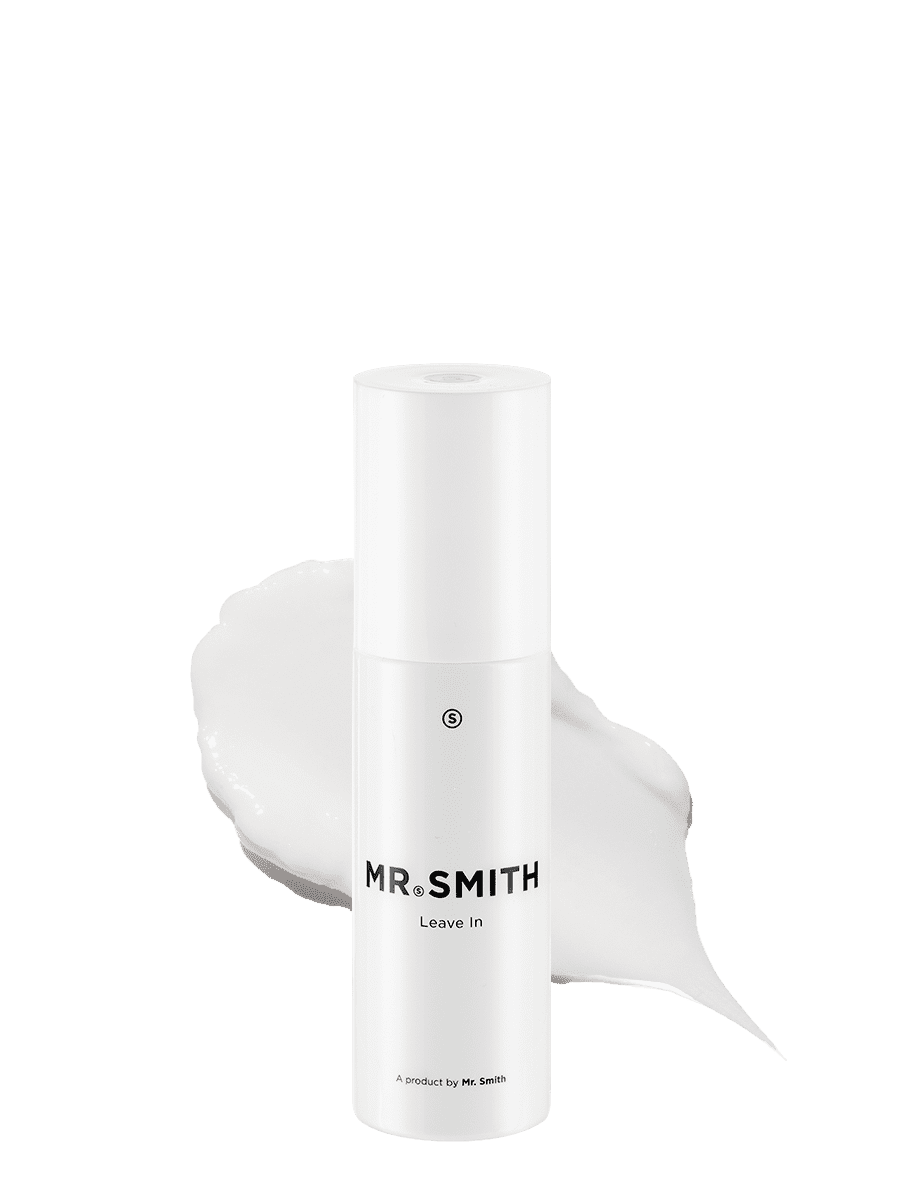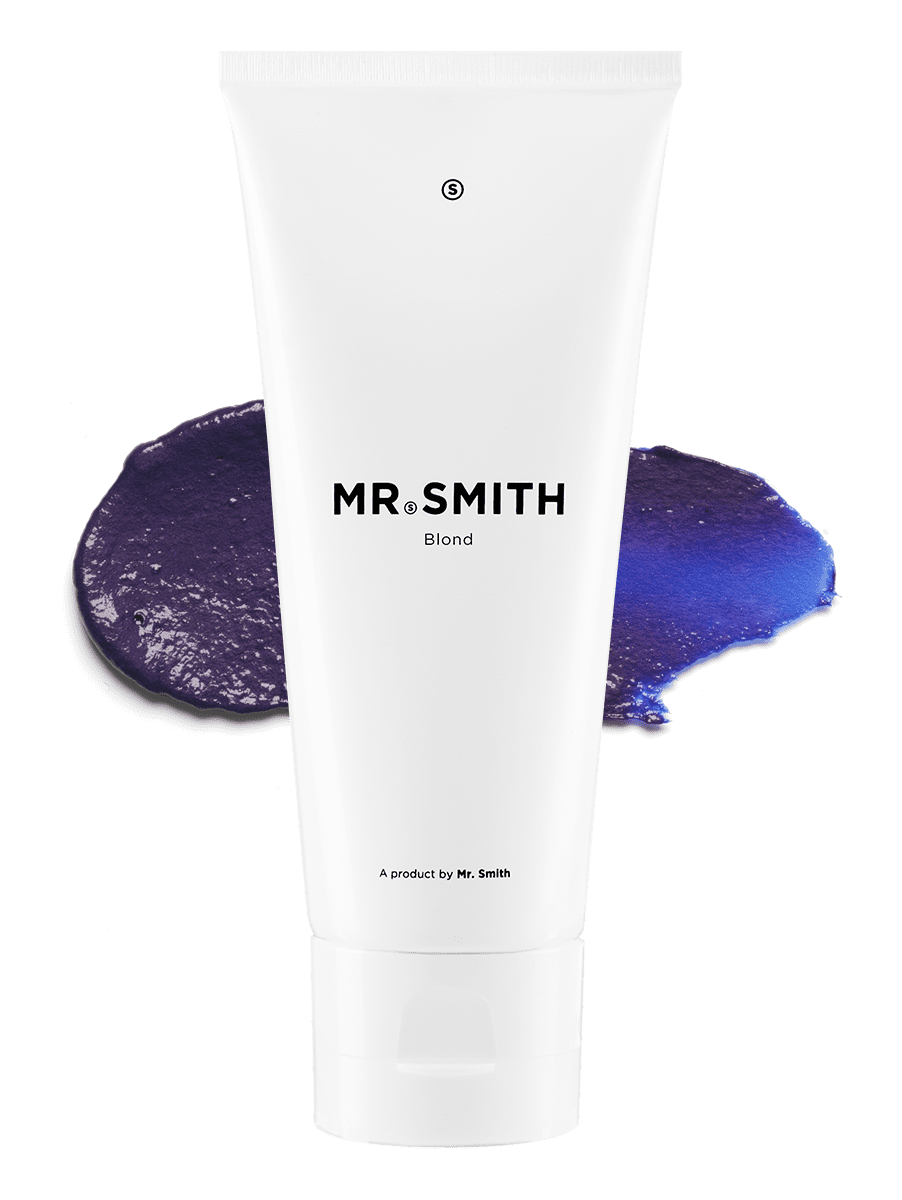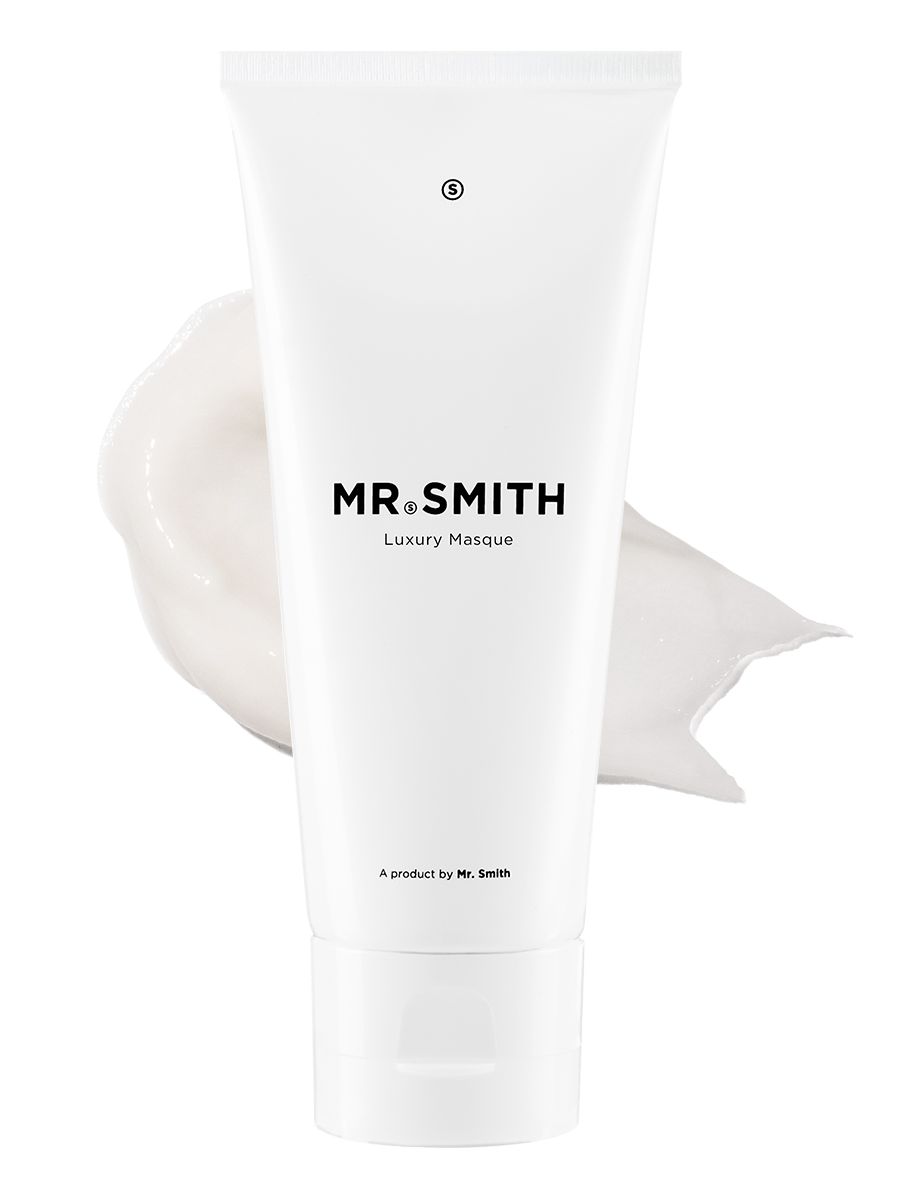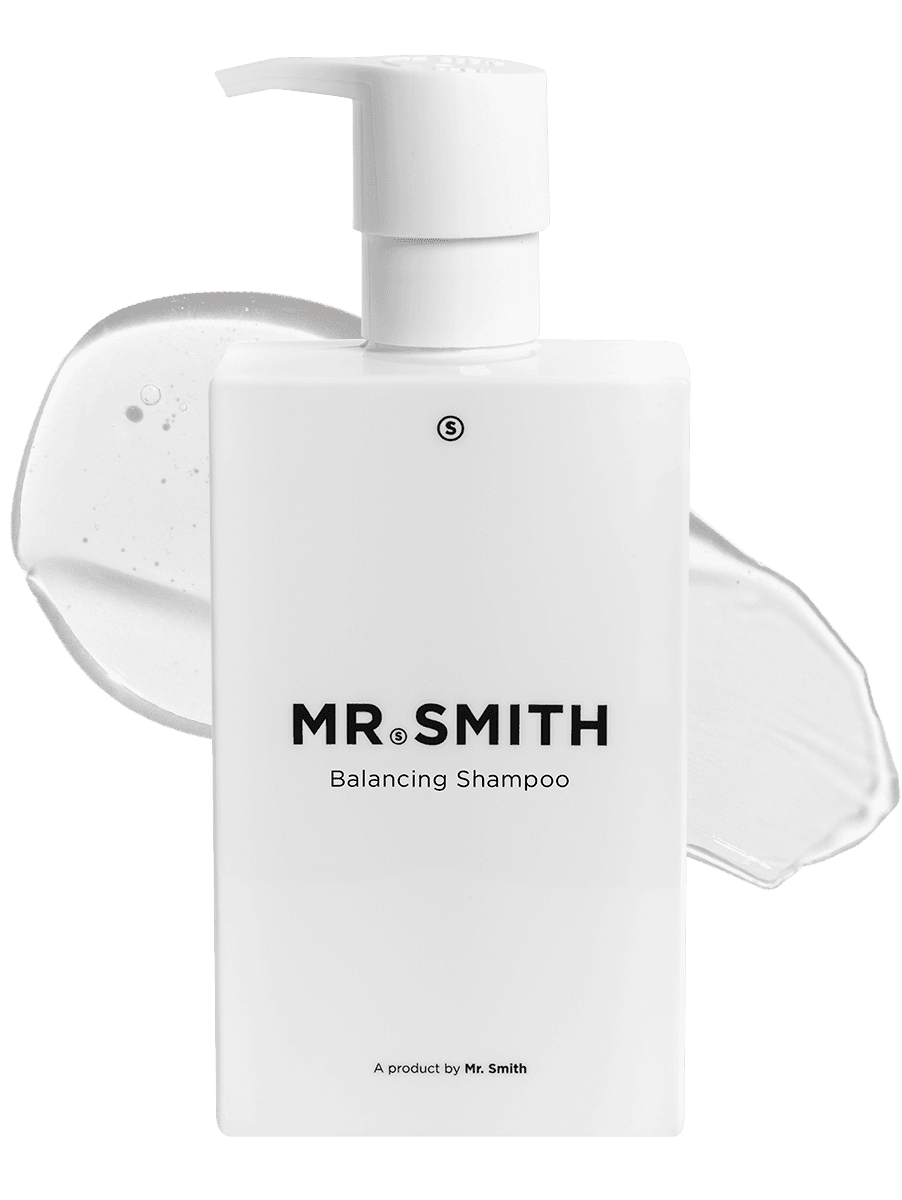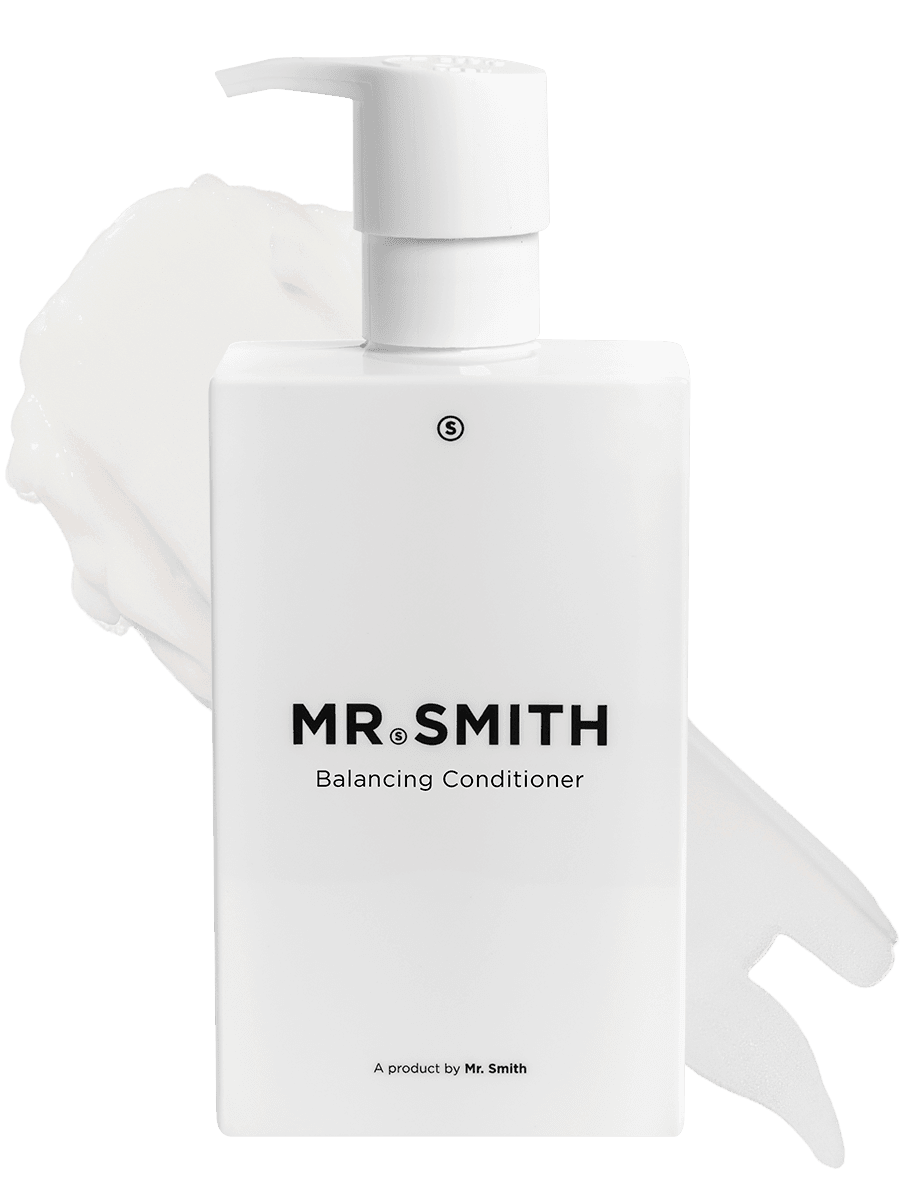We’ve been hard at work testing new PCR bottles as we aim to transition from 100% virgin packaging to a combination of PCR and virgin plastic. This ties into our sustainability promise to reduce our consumption of new materials and save 50 tonnes of virgin plastic being produced by 2025.
What is PCR?
PCR, or post-consumer recycled plastic, is manufactured from used, recycled and repurposed plastic that is collected from beaches, oceans, land and recycling plants. These plastics include plastic bottles, cleaning product bottles, plastic containers etc. By recycling these plastics, waste is diverted from ending up in landfill, making it a less wasteful and sustainable alternative to 100% virgin plastic.
PCR offers the same level of functionality as regular plastic, reduces overall carbon footprint, lessens the impact of landfills, can be continuously recycled and reduces the amount of new plastic created.
How is PCR created?
The process behind our new Mr. Smith PCR bottles:
Step One: Plastic is collected by environmental volunteers and related organisations from oceans, beaches, land and recycling plants, as well as from public places such as parks, malls, streets and garbage bins. The collected plastic is then sent to resin manufacturers to be turned into PCR.
Step Two: Once the plastic is received it is broken down into smaller pieces.
Step Three: Plastic is sorted by its differing material, such as PET, PP and PE, as these plastics have different properties and need to be treated differently
Step Four: The plastic is then cleaned at high temperatures and disinfected to ensure that it is food grade.
Step Five: The PCR plastic is melted down with virgin plastic and put into moulds. Once it has cooled, the Mr. Smith bottles are created.
Step Six: You receive your Mr. Smith products in bottles that can be recycled over and over. This means less plastic is ending up in landfill, reducing our overall carbon footprint.
In some cases, PCR cannot be recycled into new plastic bottles without adding new raw materials. This is because PCR is sometimes not strong enough on its own to make a new container. Where possible, Mr. Smith bottles will use a combination of PCR and virgin plastic. We are aiming to increase the percentage of PCR that goes into our bottles over time.
There may be some colour variances between our products as they will be composed of different percentages of PCR due to their different functionality requirements. This new packaging is a more sustainable option, whilst still looking good in your shower.
Benefits of PCR
PCR is less wasteful than virgin plastic. Producing PCR plastic over virgin plastic reduces carbon footprints, lessens the impact on landfills and helps achieve sustainability goals.
By using PCR the need for virgin plastics is reduced, as well as the amount of microplastics entering the environment via dumping and degradation. Microplastics find their way into oceans, seas and waterways where they are ingested by marine life and accumulate up the food chain.
PCR is a more sustainable option to virgin plastic whilst offering the same level of protection and barrier performance. PCR blocks light, oxygen, and other gases from penetrating the packaging and getting into your product.
Style. Substance. Simplicity.
Mr. Smith
 AU
AU US
US


